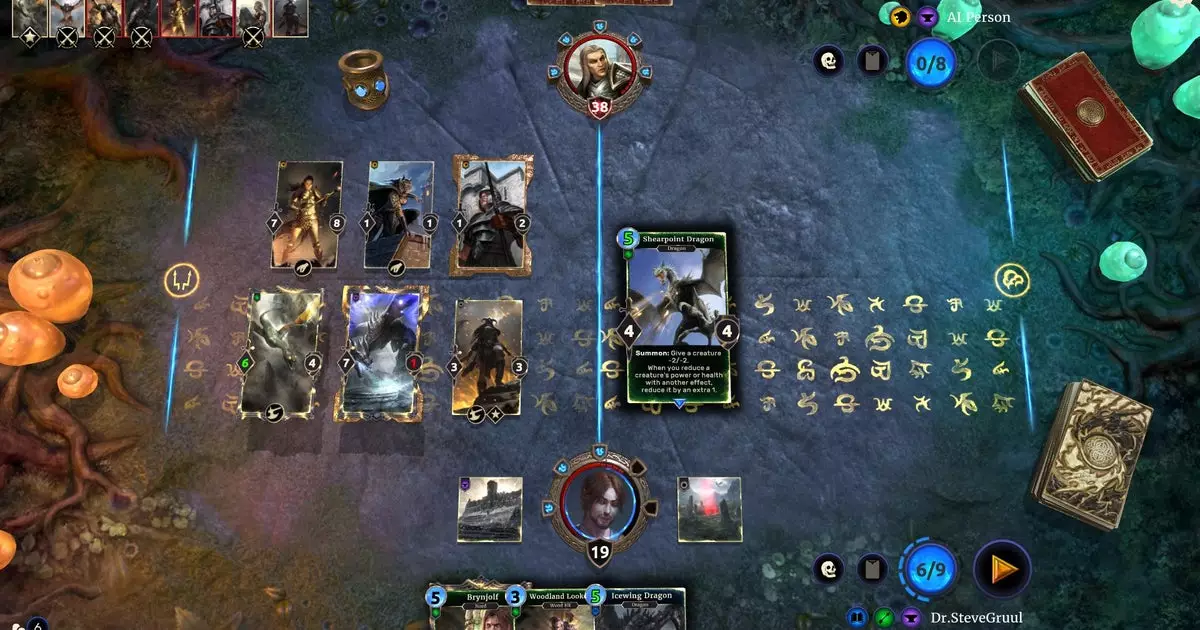In a recent and rather disheartening development for fans of card games, Bethesda has announced the termination of The Elder Scrolls: Legends, a free-to-play card game that many hoped would carve out a niche within the vast world of gaming. The closure signifies a definitive end to a title that, despite its promise, failed to capture the longevity one might expect from a franchise of such caliber. With the servers set to shut down on January 30, 2025, players will soon bid farewell to a game that, despite its innovative mechanics, could not secure a loyal player base. The game’s disappearance from Steam, accompanied by a message indicating its inaccessibility post-deadline, highlights the ephemeral nature of many modern online games.
Launched in 2017, The Elder Scrolls: Legends initially generated excitement within the gaming community. Its mechanics, particularly the rune system, offered a fresh twist on the card gaming genre, leading some reviewers, like Brendy, to posit that it improved incrementally upon popular titles like Hearthstone. However, it only took a couple of years before meaningful updates and new content ceased altogether. This stagnation may have alienated players, leaving them with a sense of abandonment, as the game quietly faded into obscurity. It serves as a poignant reminder that even beloved franchises can fall victim to the fickle nature of gaming trends and developer support.
One of the most troubling aspects of live service games, exemplified by The Elder Scrolls: Legends, is the lack of an offline mode. Players often invest their time, crafting their decks and mastering strategies, only to have their efforts rendered useless when servers ultimately shut down. Unlike traditional single-player games where ownership remains indefinitely, the transient nature of free-to-play models perpetuates a sense of insecurity. This raises larger questions about the treatment of consumers within the gaming industry and the sustainability of a model that can so easily discard content and communities that once thrived.
The downfall of The Elder Scrolls: Legends prompts a critical examination of future projects within the realm of live service gaming. As both developers and players grapple with the implications of fleeting game lifespans, it becomes increasingly vital for companies to consider player investment not just in financial, but also in emotional terms. The gaming community thrives on engagement and loyalty, and to treat vibrant worlds and their customers with such short-sightedness breeds disillusionment. This predicament calls for a rethinking of how games are developed, marketed, and supported in the long run.
Ultimately, the dissolution of The Elder Scrolls: Legends serves as a stark reminder of the inherent risks accompanying live service models in gaming. As digital landscapes shift and change, the potential for realized investments in time and money can be extinguished overnight, leading to broader discussions about consumer rights and the preservation of digital content. While video games offer unique storytelling and community experiences, the question remains: can they afford to ignore the future of their own development? The fate of Legends might be just one more casualty in a cycle that risks undermining the very fabric of gaming culture.


Leave a Reply